Matrons to 'put patients at heart of care'
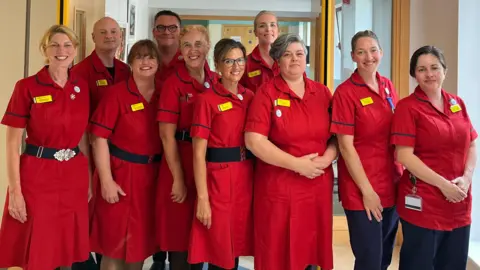 BBC
BBCA new network of matrons would "put the patient at the heart of everything", the head of nursing at Noble's Hospital has said.
On 1 May, eight senior matrons took up their roles in a bid to refocus existing clinical lead posts.
The changes, which Manx Care said had incurred no additional costs, have been designed to give matrons the authority to ensure high levels of care, while making them accessible to patients.
Executive director of nursing and allied health professionals Sheila Lloyd said the move would ensure "the best possible care" by engaging with the public more.
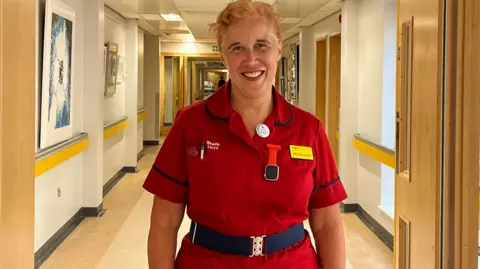
The move meant that matrons attended less meetings, to "free them up to spend time with people at the front that matter to us the most", Ms Lloyd said.
The senior matrons cover eight areas - paediatrics, midwifery, mental health, social care and safeguarding, surgery, medicine, community care and cancer services.
Through weekly meetings and working together, it would enable the Matrons to "connect the dots" to achieve "the best possible outcome", she said.
Ms Lloyd said communication with patients was "not as effective as it could be" at times, so the ambition was to improve that by freeing up the matrons to "be closer to the people we serve".
Their introduction would also provide "role models" within nursing, and ensure there was a "strong career pathway" to help retain staff, she added.
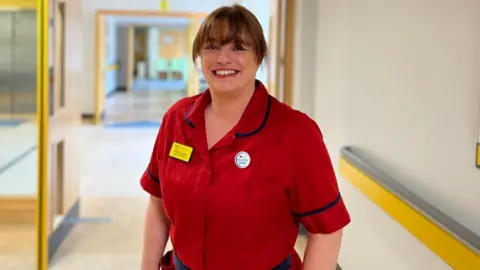
Senior matron for integrated primary community care Emma Cleator said in the role she would expect to be contacted directly by the public.
Although Manx Care always needed to ensure high clinical standards, now the matrons had the authority to make decisions, and make sure there was a "consistent approach" across the organisation.
Her role covered community nursing, specialist services, the diabetes service, sexual health services, tissue viability and prison healthcare, so it was "vast and island wide", she said.
A challenge would be "being visible everywhere", and while the public often saw Manx Care as the hospital or GPs, primary care was a "big patch to work along", she said.
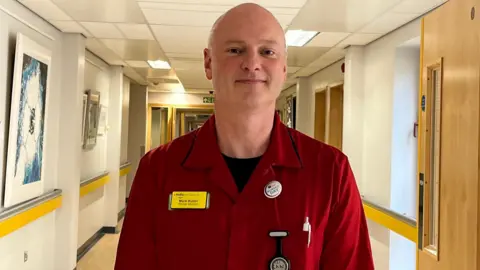
Mark Butler, senior matron for integrated mental health services, said a key advantage was how closely the senior matrons would work together.
That, he said, enabled them to share cases and "solve problems across the organisation which had not come naturally in the past".
He said his team was looking at more preventative measures rather than intervention.
"We spent a lot of time training in providing less complex interventions to prevent people needing more intensive care in the future", with the service intending to trial a first contact practitioner in GPs, he said.
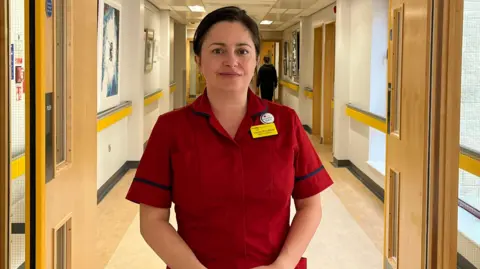
In paediatrics, the senior matron Louise Proudfoot said the posts empowered them to "be more visible" and be clinical leaders that were "more accessible to the public".
Her team was looking at introducing more pathways to treat children at home in home, which was the best place to care for them, she said.
As senior matron it enabled her to ensure "safe, effective and good quality care through audits, feedback and training", she said.
Read more stories from the Isle of Man on the BBC, watch BBC North West Tonight on BBC iPlayer and follow BBC Isle of Man on Facebook and X.
